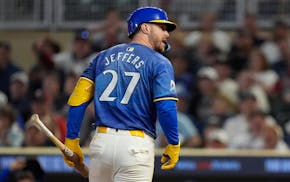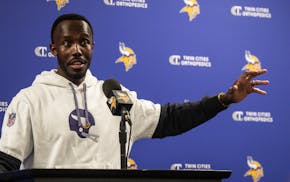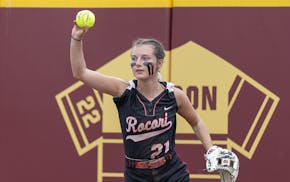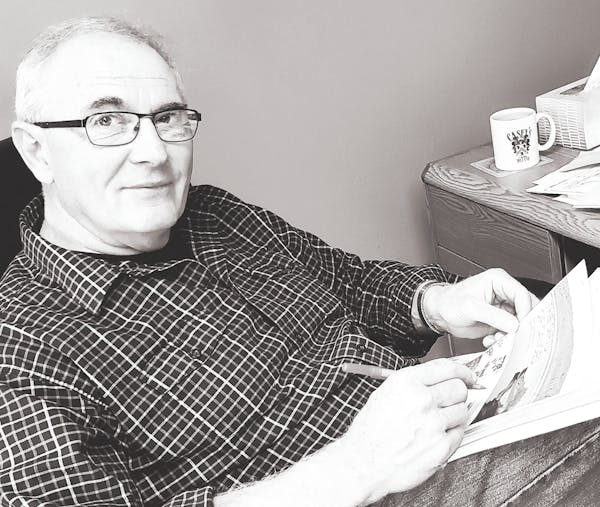In his 82-year life, former Minnesota DNR Commissioner Rod Sando developed the mind of a research scientist. The eye of a bird hunter. The soul of a nature lover. And the heart of a youthful smoke jumper (which he was for a fire season out West).
He could be curt and crusty with those he regarded as fools or slackers, given his touch of Scandinavian reserve and farm boy resolve. But his passion for music spanned the spectrum, from country love songs to rhythm-and-blues heartaches: "Nobody loves me but my Momma, and she could be jivin' too."
Sando, who died July 19 of cancer at his home in Woodburn, Ore., was a complicated and colorful man, whose critics complained he was arrogant and hard-headed. I just thought he was damned smart and, well, confident. The facts are Sando served the DNR as its director of forestry and bureau of lands. He became the DNR commissioner from 1991 to 1999. His imprint was trying to distribute resources according to ecosystems rather than to political boundaries and negotiating a settlement with the Mille Lacs Band of Ojibwe over the harvest of walleyes. The Legislature rejected the settlement which, in effect, later was validated by the courts.
He left in 2000 for Boise, Idaho, as the director of the state's Department of Fish and Game, and joined me and Don Shelby on a trip to the Bob Marshall Wilderness Area in Montana. We planned to walk along the spine of the Continental Divide and wind up at the Chinese Wall in the "Bob." Shelby and I, friends for years, didn't know Sando well, but that changed in 24 hours.
On the way up to our campsite on horseback, Shelby got tossed off his horse when a gust of wind rustled the map Don was reading. Ironically, he was the best rider and now he was on the ground, landing on the back of his head and shoulder. He broke that shoulder and three ribs.
That's when Sando's confidence kicked in: I got to Don first, pulling aside his bleeding tongue to clear his airway. Then Sando took over, wrapping Don's arm and shoulder with duct tape, to ensure no rib edge would puncture a lung. Next, we got him into a sleeping bag while Don remained remarkably in control of himself and his pain (nothing but aspirin for relief).
Sando pitched a tarp over his head, and we spent the night in our makeshift lean-to — me and the commissioner lying on either side of Shelby.
The next morning a chopper flew Don to the hospital in Missoula; Sando and I stayed behind — at Shelby's urging — spending two more days in the "Bob." We climbed, hiked, cooked and slept on the ground under the stars. On the last night, Sando sat with his back against a tree and played the mouth harp: "Old Joe's Train."
Shelby recovered. We departed, retired and got back together almost two decades later in Oregon. Sando had moved, met and married Jan and served as executive director of the Columbia River Fish and Wildlife Authority. We had no business cards, adoring fans or followers. Just three old guys with a yen to fish, look, walk and talk.
Officially, we went salmon fishing off the mouth of the Rogue River in southern Oregon. Unofficially, Sando and Shelby launched a three-day, two-man symposium on climate change. They discussed melting glaciers, rising oceans, raging wildfires and alarming indifference. They brought facts, figures and studies and even talked of a "null hypothesis." I smiled as I recalled the definition from a college chemistry course.
But for me, the real nugget of that trip was on our way back to Portland when we found an old fishing lodge along the Rogue where we could have lunch. I recalled it with a short story from my book, "The Home Stretch":
"The waitress who served us lunch — cold fried chicken, hot biscuits, cole slaw and lemonade — spotted a tattoo on Shelby's wrist. An Army insignia? she asked. No, he said, my wife's name, but I was in the Air Force. She said her son had been in the Marine Corps, serving two tours in Iraq as a chopper mechanic. She was obviously proud of his service and subsequent college education.
"But he came back changed, she said, and estranged from her. She'd never seen her two grandchildren. She started to cry as she recalled that, in her family tradition, the children always came to see the parents. She apologized for the tears and we told her it was OK. We were no strangers to pain.
"Sando gently told her perhaps she ought to initiate the visit. Shelby allowed as how he thought she wasn't part of the problem but could be part of the solution. I gave her a hug. She thanked us for listening, wiped her eyes with the back of her hand and cleared the dishes. We paid the bill, left a tip and, on the way out, Shelby left another twenty with the lodge owner to give to our waitress.
"He said to tell her this was a down payment on a plane ticket to see her son. She'd be happy to, she said, and then we asked her to take a picture of the three of us in front of her lodge. For some reason we sensed this was a moment worth preserving: We'd been given the gift of trust.
"For 15 minutes as we rolled along the Rogue in the afternoon sun, we did not speak. It was clear that what we paid for, and what we got, was a helluva lot more than lunch."
Following Sando's death, we got that feeling again.
David Nimmer is a former reporter and managing editor at the Minneapolis Star. He lives in Oakdale.
A celebration of life for Sando is at 2 p.m. Sunday at Braham (Minn.) Event Center. Visitation is from 1 to 2 p.m.

Twins open homestand with loss to Blue Jays, Jeffers ejected after critical call

Vikings GM talks to the Star Tribune about the team's 2025 outlook, McCarthy's trajectory

Champlin Park turns a big moment into the Class 4A softball championship

Mounds View's Soren Swenson wins Class 2A boys tennis singles title; St. Paul Academy sweeps in 1A

